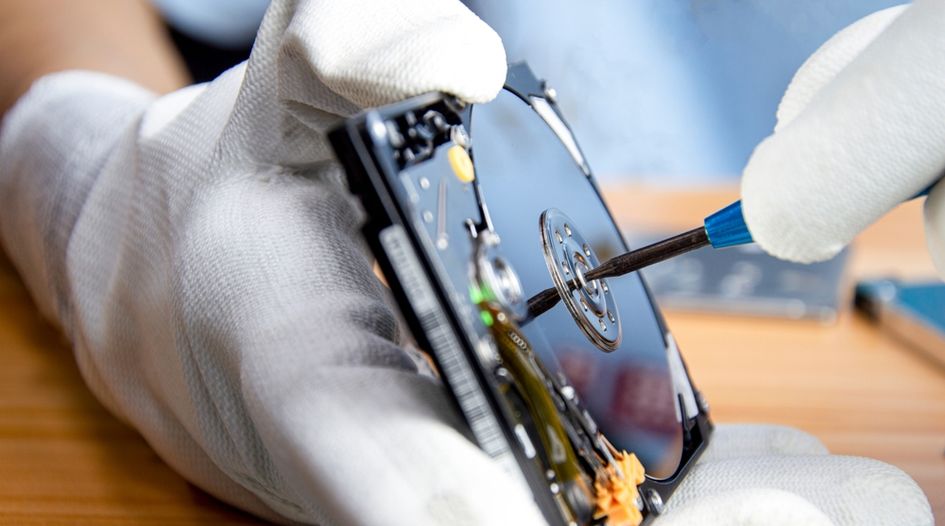Delhi High Court restricts tech company from selling refurbished hard-drive disks in reverse passing off case

The Delhi High Court has ruled on allegations of trademark infringement and reverse passing off in a case involving two technology companies, eventually restraining the defendant from selling the disputed hard-drive disks (HDDs) (Western Digital Technologies Inc & Anr v Geonix International Private Limited & Anr, CS/COMM 168 of 2024, 26 February 2024).
Passing off typically occurs when a company knowingly or unknowingly presents its products as being affiliated with a different entity due to use of a confusingly similar mark. Reverse passing off involves an entity buying another company’s product, removing the latter’s trademark and reselling the product after affixing its own mark.
Likelihood of confusion is not a factor in cases of reverse passing off; a defendant may be held liable even if its mark is completely different to that of the plaintiff. The plaintiff only needs to show that the defendant has falsely attributed the origin of the plaintiff’s products, leading consumers to believe that the product comes from the defendant, thereby harming the plaintiff.
Case background
In this case, the first plaintiff was Western Digital Technologies, a global company that manufactures storage devices, media players, routers, desktops, solid-state drives, HDDs, software mobile applications and other related equipment. In connection with its business, it has registered and uses the trademark WESTERN DIGITAL and the below logo in India.

The second plaintiff – a subsidiary of the first – owns the trademark ULTRASTAR, which is also used in connection with HDDs. Collectively, the plaintiffs alleged that the defendant, Geonix International, was refurbishing the plaintiffs’ old, discarded HDDs and reselling them as new under its own brand name and trademark GEONIX.
The plaintiffs stated that they investigated the defendant’s activities. They found that several variants of the defendant’s HDDs under the mark GEONIX had been purchased and a subsequent examination by an internal team of engineers and a third-party technical expert revealed that the plaintiffs had originally manufactured these products under their marks WESTERN DIGITAL and ULTRASTAR.
The defendant was alleged to have physically altered the plaintiffs’ branding and trademarks on the HDDs. For example, the model and serial number embossed by the plaintiffs on the printed circuit board had been effaced and the circuit board had been reformatted with the defendant’s own markings. It was highlighted to the court that despite the defendant’s refurbishment, the plaintiffs could still be identified as the original manufacturers of the impugned HDDs once they were run on a device and a report was generated. Thus, the defendant was rebranding and selling the plaintiffs’ old HDDs to customers by misrepresenting them as new and unused. Unauthorised removal of the plaintiffs’ trademarks and selling their goods as new amounted to reverse passing off. The impairment of the plaintiffs’ marks also infringed their statutory trademark rights.
The dispute
The defendant contended that the impugned HDDs had been lawfully procured, so the plaintiffs’ trademark rights were exhausted. Further, it stated that since the HDDs were being sold under its own brand name, consumers were not being misled and no trademark infringement had taken place of the plaintiffs’ brand names.
The court opined that prima facie the defendant’s actions would erode the reputation and goodwill of the plaintiffs. Generated upon running the HDD, the report – which linked the products to the plaintiffs – indicated that the defendant was unsuccessful in its attempt to remove the connection between the goods and the plaintiffs.
Such a link was bound to have a potentially detrimental effect on the plaintiffs’ reputation. Since the defendant was found to be falsely designating the origin and source of the impugned goods as its own, the court held that a case for reverse passing off was just. Accordingly, it proceeded to restrain the defendant at the ad-interim stage.
Key takeaways
Refurbishing products highlights many interesting legal challenges. Some cases, such as this one, can lead to a conclusion of reverse passing off. However, in other situations – such as when alterations are linked to downstream customisation of products or the right to repair – a defendant could overcome allegations of reverse passing off by arguing against the violation of third-party rights. The court’s decision here draws on the unique intersection of proprietary rights, consumer interest and fair play.
WTR recommends
Recent prejudicial interpretation on cancellation of trade names - what you need to know
Delhi High Court grants well-known status to HALDIRAM mark and raps defendants for evading proceedings
Managing Infringement Threats Across the Supply Chain
This is an Insight article, written by a selected partner as part of WTR's co-published content. Read more on Insight
Copyright © Law Business ResearchCompany Number: 03281866 VAT: GB 160 7529 10